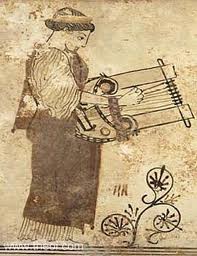“Difficult books” ends up being one of my most-blogged-about topics. I like to challenge my brain with concepts that rattle the typical, with texts that force me to slow down and puzzle through my tangled thoughts. Right now, I am slowly reading two difficult but extremely rewarding books: Ann Lauterbach‘s The Night Sky: Writings on the Poetics of Experience and Elaine Scarry‘s The Body in Pain.
Both of these writers use plenty of source material that synthesizes (or sometimes argues with) their concepts and explorations. In many cases, these are books new to me, but Lauterbach also quotes from and is inspired by some of my own favorites: Whitman, Emerson, Dickinson, William James. Lauterbach combines what my students would call a geeky interest in theory (literary and social) with anecdote, musings, and a collaged or transgressive approach to the argument or critique. This is to say I admit I do not always know where she is going with her essays, even at the close of them. And yet–her interweavings fascinate, her choices surprise. She’s a master of the pithy definition (“Poetry is…”), but she allows for many perspectives, many definitions.

Brad Hammonds/Flickr Creative Commons
Scarry’s text covers a different domain, though theory certainly has a place in her book. The Body in Pain examines what pain is–semiotically, physically, its interiority, its defining characteristics, the portrayal of pain in art and literature and what that tells us about the body, the Self, and the shared understanding but individual experience of pain. I have not gotten much beyond the second chapter of her book, but I already feel myself inquisitive about aspects of human pain that I had never even considered before; who thinks about pain except when feeling, or anticipating feeling, pain? Of course we know what pain is–until we try to describe our experience of it to another person.
I’ve had that frustrating experience numerous times (here’s Ally Brosch of Hyperbole & a Half with the best solution to pain charts), but I have not devoted much time to exploring why pain is so individual despite our universal recognition of its existence; also, it had not occurred to me why we so often doubt others’ pain. Scarry says we have developed no particular understanding of the phenomenon, one reason she undertook the writing of this book.
Meanwhile, the semester continues apace and my students are interested in argument after all, it appears; and the bounty of late tomatoes has arrived with much processing to do before they all rot. My time spent blogging will be brief in the coming weeks. 🙂





